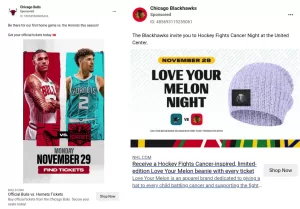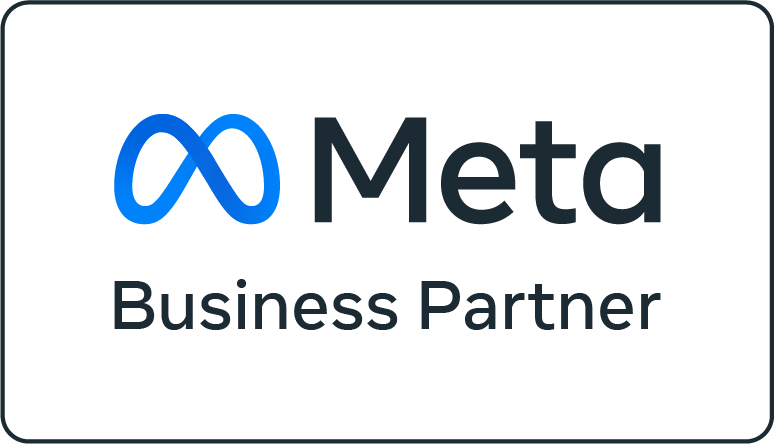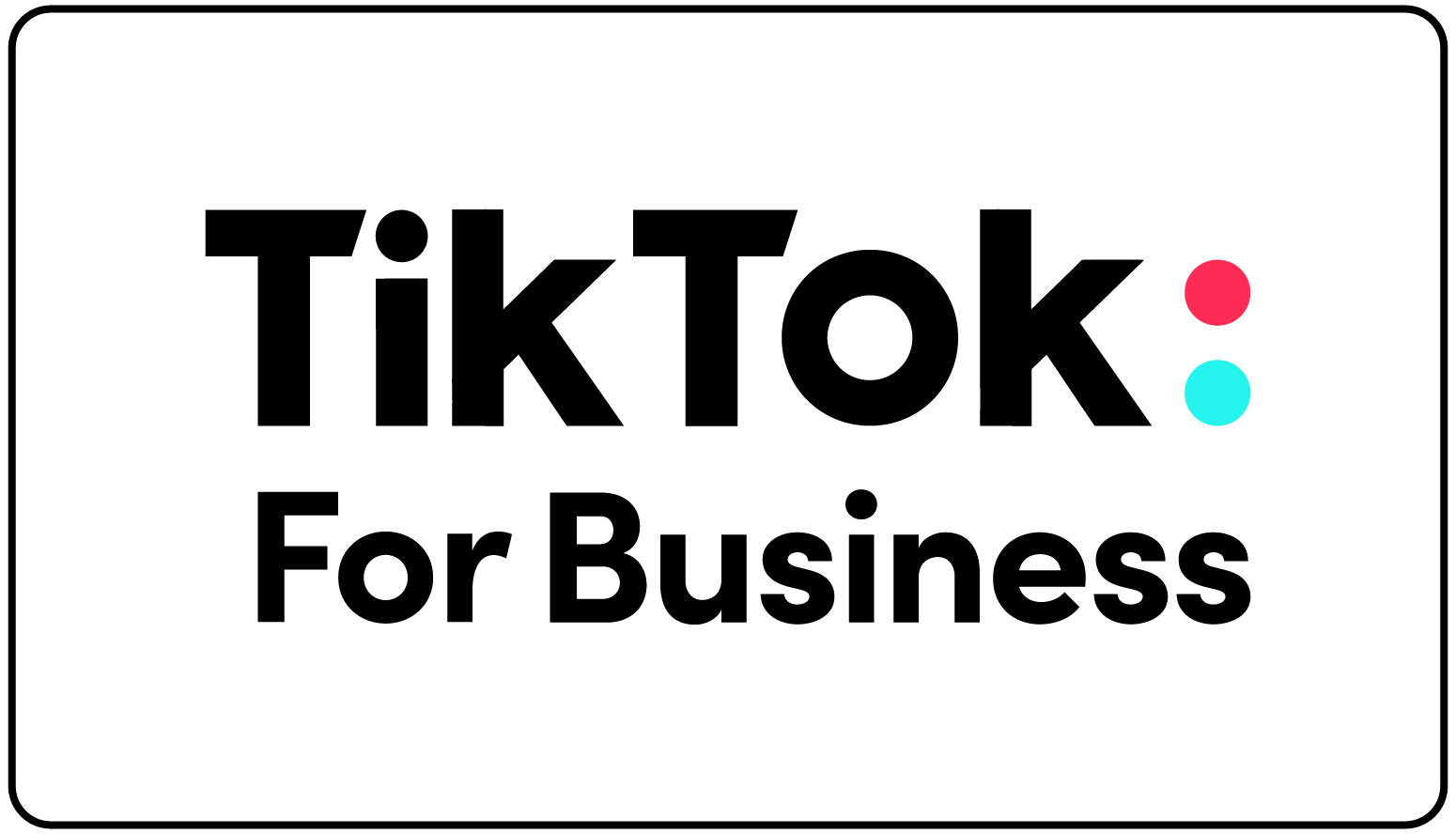UPDATE:
As things change rapidly across Ticketmaster, Apple / iOS14, and the different leagues, we found it necessary to update this post as we’ve learned a lot in the last 5 months. Below is an update to our blog post around running Ticketmaster conversion ads on Facebook for sports teams.
Updated 3/30/22
Recap
Ticketmaster’s recommendation to run campaigns optimized for landing page views yielded low ROAS results. This led us to create a work-around that allowed teams to run campaigns optimized for conversions. We did this by sending traffic to an NHL/NBA landing page, and fired a conversion event when the customer clicked out to Ticketmaster. Ticketmaster’s recent move has changed the game for teams that advertise game tickets on Facebook and Instagram.
What’s changed?
With no warning, we learned that Ticketmaster.com had suddenly appeared as a partner in one of our NBA teams’ Facebook events manager. This was news to us, so we checked in with our other pro sports teams and learned that the same thing had happened across the NBA and NHL.
What this meant is that Ticketmaster shared access to their domain with teams in the league, which previously was not the case (and the reason we needed to create a work-around 4 months prior). We saw the opportunity to test a different and more direct method of driving ticket sales through Facebook and Instagram. Instead of sending traffic from Facebook to a landing page that clicked out to Ticketmaster, we decided to test sending traffic directly to Ticketmaster from the ad click.
What we did next was key to the success we saw shortly after. We immediately configured each team’s aggregated events to add “Ticketmaster purchase” in order to optimize for purchases on their site.
The Results
We quickly designed a split test by sending half the traffic to an NBA/NHL landing page (old method) and sending traffic directly to Ticketmaster (new method). Here is what we saw:
- Within 2 short weeks, we learned that the new “Direct to Ticketmaster” campaign was outperforming our landing page method by 2X. ROAS for the landing page campaign was roughly 3X and the new method was showing a 6X return and rising.
- As a result, we switched all NHL clients to the new method and watched as ROAS soared.
- Similarly, we changed campaigns for our NBA clientele and over a 3 week period, we saw a 200% increase in ROAS.
This goes to show how quickly things change in this space, and how important it is to have the right technical minds looking ahead into the ever evolving landscape of paid social advertising.
*For context, we’ve included the text below which outlines what we were seeing prior to the update we’ve provided above*
Published 11/10/21
The issue
In today’s world of Facebook and Instagram advertising, measuring digital performance has become quite challenging for advertisers, particularly for pro sports teams who rely on the them to run ads and ticketing partners to fulfill orders.
Apple privacy changes have made tracking online activity difficult, and Ticketmaster’s guidance on mitigating this issue does not actually lead to better ROI when compared to the setup we’ll detail below.
What is Ticketmaster suggesting?
Before the iOS14.5 update, we would place the Facebook Pixel on Ticketmaster’s backend, and that would fire an event whenever someone made a purchase. Now, it’s not that easy.
When iOS 14.5+ launched, Facebook put new rules in place that only allow advertisers to optimize for events on domains they had verified. Ticketmaster did not work with teams to share their verified domain and thus advised teams who were running conversion campaigns to optimize their ads for “landing page views”, which tracks whenever someone hits the landing page after clicking on an ad. This is wrong for a number of reasons. First, by optimizing ads for a traffic objective such as landing page views, you tend to get significantly more low quality (even bot) traffic from Facebook that will heavily increase your bounce rate.
We saw this first-hand with the Chicago Bulls, and the results were telling us that Ticketmaster’s suggestion was simply not working. With our ads optimized for landing page views, we were seeing around a 0.5 return on ad spend.
So then we decided to change tactics and shift our strategy from traffic back to conversions.
What are we doing differently?
Through our work with the Chicago Blackhawks, we have worked closely with the NHL to share their verified domain and the pixel placed on the NHL website (i.e. nhl.com/blackhawks). We’re able to send ad traffic to the Blackhawks’ ticket schedule page on the NHL website and optimize our conversion event to whenever someone clicks out to Ticketmaster to buy tickets. Instead of optimizing a campaign for landing page views, we are now optimizing for a mid funnel conversion event.
We can see Ticketmaster purchases and revenue being attributed to our Facebook campaigns from Android, desktop and Apple users who have opted into tracking, and we have Google Analytics set up so that we can see true last click, single-session revenue pulling in from paid social.
To double-check both pieces, we have set up an offline conversion feed, in order to see how many people made a purchase after interacting with our ads. Since we’re uploading first party data to Facebook, iOS14 does not impact offline conversion results. Although an offline conversion feed is helpful when it comes to understanding our results, it does not help with optimization and real-time measurement.
The results of switching our paid social campaign optimization back to conversions were obvious, as we went from 0.5 ROAS to 3+ ROAS with this change. So far it has caused a dramatic difference in both Facebook performance as well as Google Analytics transactions and revenue from paid social.
If your team’s ads go straight to Ticketmaster, there is a good chance your ads are not performing the way they can with the proper setup. Although Apple’s privacy updates have limited advertisers’ visibility into data tracking and online user behavior, that shouldn’t scare people away from continuing to optimize and measure conversions. We hope this guide can help you run ads more efficiently and increase ROI for your business.
Contact us if you have any questions or would like to discuss further.


